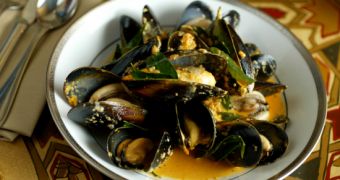The latest issue of the journal Environmental Toxicology and Chemistry saw the publication of a new study stating that, as a result of a so-called “plastic soup,” creatures living in marine environments could very easily have their general health seriously affected.
For those unaware, “plastic soup” is a more colloquial phrase used to describe the buildup of countless plastic nanoparticles in water.
By nanoparticles we mean bits and pieces of plastic measuring about a thirty millionth of a millimeter, so one can easily imagine that this threat to marine wildlife is anything but visible to the naked eye.
However, researchers claim that, after being exposed to such particles, mussels (i.e. various types of clams) have experienced a decline in their usual appetite, meaning that they started eating less. As one can easily imagine, this in turn hindered their growth.
The researchers who looked into this issue explain that, up until now, most studies have focused on how marine wildlife responds to your average-sized plastic debris, yet their studies suggest that the issue of plastic nanoparticles slowly making their way into global water resources is also something that has to be given due consideration.
Those wishing to investigate this newly emerging problem need to pay attention to how plastic debris behaves once it reaches the water.
More precisely, although plastic nanoparticles accumulate in aquatic ecosystems either as a result of decomposing plastic debris, or simply released as such by the cosmetics and clothes industries, the fact remains that they have a very specific dynamics that must be fully understood before anything can be done in order to safeguard marine wildlife.
Professor Bart Koelmans explains how, “It [their findings] means that those effects are not easy to predict because the biological availability of the particles can differ enormously from one organism to another, and because variation in water quality also plays a role.”
He further goes on to argue that, although for the time being, “plastic soup” is not an issue that has to worry us in the extreme, it is nevertheless important for future studies to investigate in further detail how it is exactly that such plastic nanoparticles can affect marine environments.

 14 DAY TRIAL //
14 DAY TRIAL //